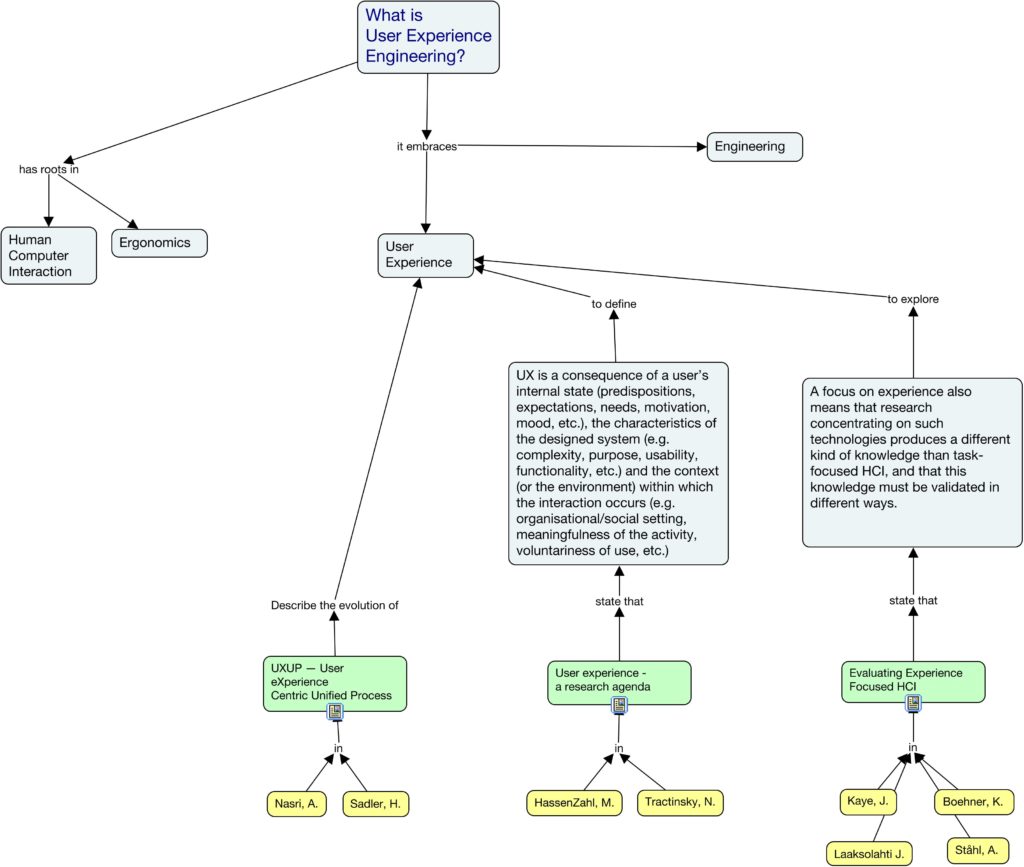
User experience engineering can be imagined in two ways. Firstly, conventionally, we can talk about choosing technologies to ensure that users can achieve goals in ways which are optimised to fit them, their aspirations, capabilities and personalities. Every link in the chain of technologies is optimised to ensure that users are freed from the focus on technologies to a focus on the reason that they have for using technology.
Secondly, more creatively perhaps, we can imagine opening new opportunities, new experiences, for users through technology. Users can be transported to places that they can’t physically visit, they can interact with people they can’t physically meet, or they can learn by observing inaccessible worlds such as living cells or a chemical factory.
What is User Experience?
As people sought to extend the classical Human Computer Interaction (HCI) focus on tasks, the experience of the user was promoted as a critical facet of interaction with and through technology.
“By “experience” we mean all the aspects of how people use an interactive product: the way it feels in their hands, how well they understand how it works, how they feel about it while they’re using it, how well it serves their purposes, and how well it fits into the entire context in which they are using it.” L. Alben, “Defining the criteria for effective interaction design”, interactions, vol. 3, no. 3, pp. 11-15, 1996.
“UX is a consequence of a user’s internal state (predispositions, expectations, needs, motivation, mood, etc.), the characteristics of the designed system (e.g. complexity, purpose, usability, functionality, etc.) and the context (or the environment) within which the interaction occurs (e.g. organisational/social setting, meaningfulness of the activity, voluntariness of use, etc.).” M. Hassenzahl, N. Tractinsky, “User experience-a research agenda”, Behaviour & information technology, vol. 25, no. 2, pp. 91-97, 2006.
What is Engineering
“The branch of science and technology concerned with the design, building, and use of engines, machines, and structures.”
Science?
“The intellectual and practical activity encompassing the systematic study of the structure and behaviourof the physical and natural world through observation and experiment”
Technology?
The application of scientific knowledge for practical purposes, especially in industry: – machinery and equipment developed from scientific knowledge.
